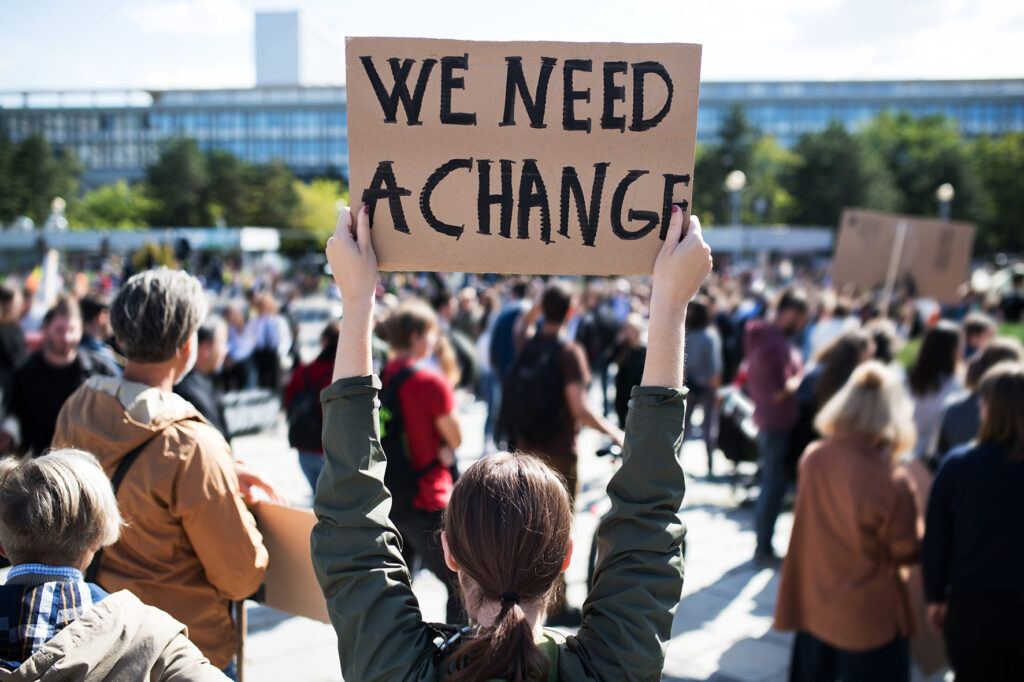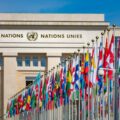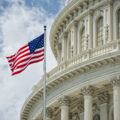Partisan polarisation in the US and religion in Europe
Partisan polarisation in the US and religion in Europe
This article was written in preparation for our round table on Voting for the Future.
The partisan polarisation in the US, between Donald Trump’s Republican Party and Joe Biden’s Democratic Party, has transformed the US elections into an event that will significantly influence life beyond the US itself. Beyond the American continent, Europe is set to be affected by the outcomes of this election. Climate change, the future of NATO, foreign policy particularly towards China and Russia, and internal trade are all set to be shaped by who leads the US over the next four years. Another key arena of influence is religious life in Europe. As the past four years have demonstrated, the state of politics in the US does inform particular religious developments across the Atlantic.
Shining bright in right-wing Europe
In one way, the developments resulting from the US elections may lead to similar developments in Europe. Taken this way, the US’s partisan polarisation is acting as a yardstick for polarisations within Europe. A key aspect of this is the relationship between right-wing populism and religion in Europe and the US. Right-wing populists in both the US and Europe have pursued the ideological use of Christianity, often against religious minorities such as Muslims, to chime well with public opinion at a time of great uncertainty, instability, and insecurity. As argued by German historian Sylvia Taschka, “Trump’s America shines bright for Europe’s radical New Right.”[1] While not popular in Europe in the same way as his predecessor President Barack Obama, Donald Trump has found a foothold across the Atlantic: he has become a heroic figure for many groups in Europe’s far-right. “With Trump, the pride of a whole population has awoken … Their hope is captured in one sentence ‘Make America Great Again,’” said Martin Sellner, the leader of Austria’s Identitarian Movement, in 2016. “The ‘Trump Wall’ already acts like a mystical symbol of self-preservation and the survival of a culture.”[2]
Another four years of Republican control would demonstrate to many such groups the value of right-wing populism generally and Islamophobia specifically to win more votes.[3] In terms of policy, this could have significant impact, ranging from setting restrictions on religious life under the new “culture ban” to exclude Muslims altogether under the claim that Muslims’ religious and cultural attributes make them either unacceptable as neighbours or incommensurate with assimilating to Europe’s native norms and values.[4] Joe Biden’s arrival may stem the confidence and implications of Europe’s right-wing politics. Biden, who the political theorist Carlo Invernizzi Accetti calls a Christian Democrat, is predicted to take a path away from Donald Trump’s far-right nationalism, while also eschewing Bernie Sanders’s democratic socialism.[5] But unlike the European political tradition of Christian democracy, Biden is also likely to promote the tradition of American secularism. American secularism’s “wall of separation” between politics and religion is less likely to mobilise Europe’s right-wing politics and its ideological appropriation of Christianity.[6]
“Uninhabitable hell”
In another way, the US election result may galvanise religious activism and independent action in Europe. Climate protests are one example. The American rejection of the Paris Agreement and its unravelling of domestic rules set to control vehicle emissions, methane, and other greenhouse gases could see the US alone pump nearly 2 billion extra tons of carbon dioxide into the atmosphere by 2035.[7] For many people, including the Christian faithful, the stakes are too high. The world may become an “uninhabitable hell.”[8] Christian activists have, therefore, increasingly taken up climate protest. “As Christians, we should be prepared to make any sacrifice necessary to serve and protect God’s creation,” says one activist.[9] This time of protest, marked dramatically by Extinction Rebellion, an emergent movement seeking rapid action to stop global warming, has also mobilised organisations such as the Christian Climate Action. Its members, mostly retirees and students, see an increasingly active role in trying to curb climate change as an inevitable outcome of their faith: “For me, it’s the first verse of the Bible that hits home: If God created all that is, what does it mean for us to be destroying it?” says a Christian Climate Change protester. ”For us to be participating in its destruction is sacrilegious — not something believing Christians should be doing.”[10] The fact that the Church of England’s General Synod voted last year to disinvest from fossil fuel companies that fail to meet the Paris climate agreement[11] speaks of the relationship between religion and climate change. Indeed, faith groups from Jewish, Buddhist, Muslim, and other faiths around Europe and the world have also joined protests, as moral and spiritual action against human-driven climate change. Ironically, the imperatives of climate change have also been exploited by Europe’s right-wing populists, such as the unprecedented coalition government in Austria between the Conservative People’s Party (ÖVP) and the Green Party.[12] Political scientist Benjamin Opratko warns that the “greenwashed right-wing project” is not one that Europe needs.[13] While recognising the need for the Green Party to prevent the right-wing FPÖ from re-entering the government and to deliver on climate promises, Opratko argues that the coalition programme to “protect both the climate and the borders” is “climate apartheid”: it will lead to inhumane policies against Muslims, and empower anti-immigration within the European Union (EU) and its nation-states.[14]
How will the story turn?
The relationship between the US and Europe is not straightforward and even unpredictable. Events, however, on either side do arguably have a bearing on both. How the story of the US’s partisan polarisation turns during the US election is, therefore, being observed and followed closely by Europeans, including those engaged in Europe’s religious life. The mobilisation of partisan politics within Europe and humane action against human-driven climate change are only one of many stakes that depend on what will happen on the 3rd of November, 2020. They also reflect the larger role religion plays in determining what Europe and the US are to each other. If the US incumbent’s use of religion prevails, then the divide between the US and the EU may widen on key issues, not only climate change but also issues such as abortion and gender identity. This may also divide Europe from within. While Western Europe may struggle with influences of religiously-informed right-wing politics, their Eastern European neighbors may more fluently accept the language of nationalism and religion that the US is pitching to its people and the Western World.[15] Religion may also bridge the divide between Europe and the US. Although a devout Catholic, Biden’s ‘Americanised’ version of European political conservatism may use religion in a way that helps to not only restore some national unity in the US but also overcome the divisive politics and rhetoric currently alienating many European leaders from the US. Biden’s campaign “for the soul of America” may prioritise – albeit in an idealised way – mutual civility and an integrated order not only within the US but also with Europe.[16]
Would you like to learn more about similar topics? Visit the EARS Dashboard for more information.
[1] Trump’s America shines bright for Europe’s New Right
[2] Trump’s America shines bright for Europe’s New Right
[3] Right-Wing Populism and Religion in Europe and the USA
[4] Right-Wing Populism and Religion in Europe and the USA
[5] Joe Biden Isn’t a Liberal or a Moderate. He’s a Christian Democrat.
[6] Joe Biden Isn’t a Liberal or a Moderate. He’s a Christian Democrat.
[7] Trump’s rollbacks could add half an EU’s worth of climate pollution by 2035
[8] ‘The stakes are too high’: Christian faithful join climate protest
[9] ‘The stakes are too high’: Christian faithful join climate protest
[10] ‘The stakes are too high’: Christian faithful join climate protest
[11] ‘The stakes are too high’: Christian faithful join climate protest
[12] Austria’s Green party will pay a high price for its dangerous alliance with the right | Benjamin Opratko
[13] Austria’s Green party will pay a high price for its dangerous alliance with the right | Benjamin Opratko
[14] Austria’s Green party will pay a high price for its dangerous alliance with the right | Benjamin Opratko
[15] Culture and Religion Divide Europe, Affecting US-Europe Relations – by Peter Rough
[16] Joe Biden Isn’t a Liberal or a Moderate. He’s a Christian Democrat.






